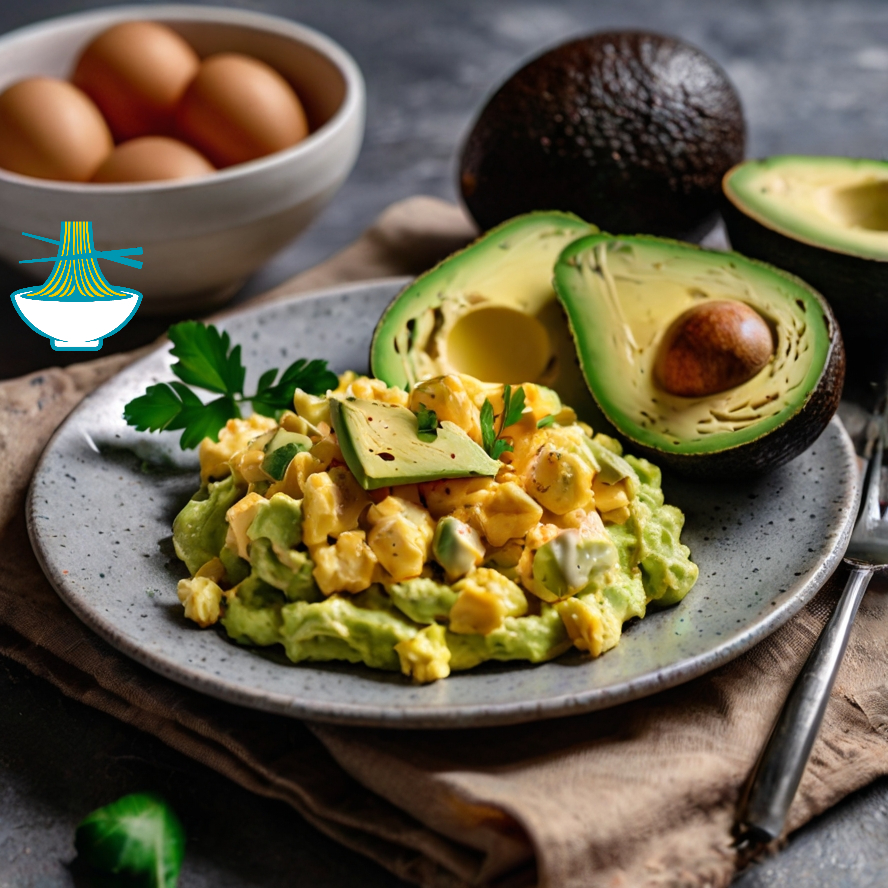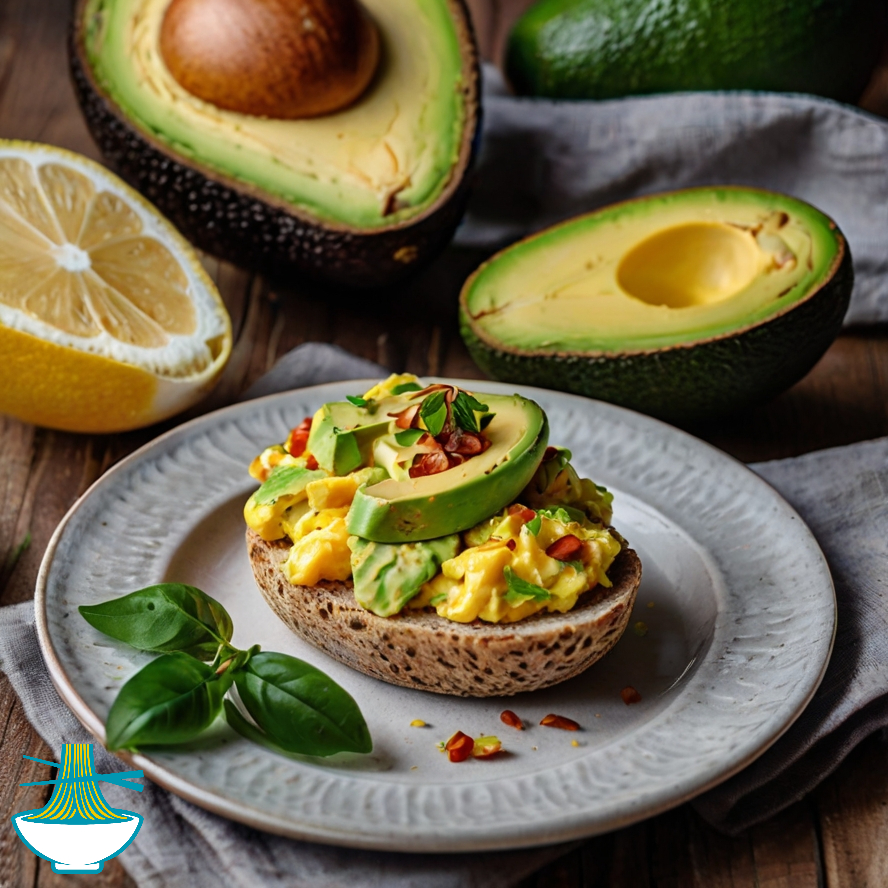Scrambled Eggs with Avocado is a simple, nutritious dish that combines creamy avocado with fluffy scrambled eggs. It's perfect for a quick breakfast or a light brunch. The richness of avocado complements the eggs, adding a fresh, buttery flavor to the classic scrambled eggs. This dish is not only delicious but also packed with health benefits. Eggs are a great source of high-quality protein and essential vitamins, while avocados provide heart-healthy fats, fiber, and potassium. Together, they support muscle health, promote satiety, and contribute to overall well-being, making this a satisfying and wholesome meal choice.
This dish reflects the modern trend of incorporating avocados into traditional recipes for added health benefits. Avocado, native to Central and South America, has become a popular ingredient in many cuisines due to its creamy texture and nutritional value. Scrambled eggs, a staple breakfast food, are often paired with various ingredients, but the addition of avocado brings a unique twist, highlighting the growing trend of healthy eating and innovative breakfast options.
Ingredients:
- Eggs
- Avocado
- Salt
- Pepper
- Olive oil
Instructions:
1. Beat the Eggs: Whisk the eggs in a bowl until well combined.
2. Cook the Eggs: Heat a small amount of olive oil in a skillet over medium heat. Pour in the beaten eggs and cook, stirring gently, until they are just set.
3. Add Avocado: Cut the avocado into small cubes and gently fold them into the scrambled eggs.
4. Season: Season with salt and pepper to taste.
5. Serve: Serve immediately for the best texture and flavor.

Nutrition Value:
1. Eggs
- Calories: 72 per large egg
- Carbohydrates: 0.6 grams
- Protein: 6 grams
- Fat: 5 grams
- Sodium: 71 milligrams
- Cholesterol: 186 milligrams
- Vitamins: Rich in vitamins A, D, E, and B12
- Minerals: Contains iron, zinc, and phosphorus
- Nutritional Benefit: Eggs provide high-quality protein, essential for muscle repair and growth. They also contain important vitamins and minerals for overall health.
2. Avocado
- Calories: 240 per cup (cubed)
- Carbohydrates: 12.8 grams
- Protein: 3 grams
- Fat: 22 grams
- Sodium: 10 milligrams
- Cholesterol: 0 milligrams
- Vitamins: High in vitamins K, E, C, and several B vitamins
- Minerals: Contains potassium, magnesium, and copper
- Nutritional Benefit: Avocado is a nutrient-dense fruit rich in healthy monounsaturated fats and fiber, which support heart health and digestion.
3. Salt
- Calories: 0
- Carbohydrates: 0 grams
- Protein: 0 grams
- Fat: 0 grams
- Sodium: 2,325 milligrams per teaspoon
- Cholesterol: 0 milligrams
- Vitamins: None
- Minerals: Contains sodium
- Nutritional Benefit: Salt is used to enhance flavor, but excessive consumption can lead to health issues such as high blood pressure.
4. Pepper
- Calories: 6 per teaspoon
- Carbohydrates: 1.5 grams
- Protein: 0.2 grams
- Fat: 0.1 grams
- Sodium: 0 milligrams
- Cholesterol: 0 milligrams
- Vitamins: Contains vitamin K and some B vitamins
- Minerals: Provides small amounts of potassium, calcium, and iron
- Nutritional Benefit: Pepper adds flavor with minimal calories and contains antioxidants that may offer health benefits.
5. Olive oil
- Calories: 119 per tablespoon
- Carbohydrates: 0 grams
- Protein: 0 grams
- Fat: 13.5 grams
- Sodium: 0 milligrams
- Cholesterol: 0 milligrams
- Vitamins: Rich in vitamin E
- Minerals: Contains small amounts of calcium and iron
- Nutritional Benefit: Olive oil is a source of heart-healthy monounsaturated fats and antioxidants, which can help reduce inflammation and support cardiovascular health.


Comments